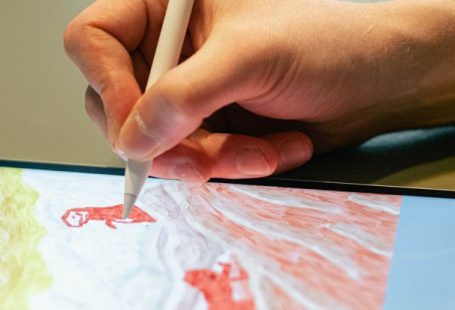In the rapidly advancing world of technology, the evolution of micro PC operating systems has played a crucial role in shaping the way we interact with computers. From the early days of DOS to the modern Windows and macOS systems, these operating systems have undergone significant transformations to meet the growing demands of users. Let’s delve into the history of micro PC operating systems and explore how they have evolved over the years.
The Rise of DOS: The Foundation of Micro PC Operating Systems
In the beginning, there was DOS (Disk Operating System), a text-based operating system that served as the foundation for micro PC operating systems. Developed by Microsoft, DOS was the dominant operating system in the 1980s and early 1990s. Users interacted with DOS through a command-line interface, typing in commands to perform tasks such as file management and running programs. Despite its limitations in terms of user-friendliness, DOS laid the groundwork for the development of more advanced operating systems that would follow.
The Windows Revolution: Bringing Graphical User Interfaces to the Masses
The introduction of Windows in 1985 marked a significant milestone in the evolution of micro PC operating systems. Windows brought a graphical user interface (GUI) to the forefront, making it easier for users to navigate and interact with their computers. The release of Windows 3.0 in 1990 further solidified Microsoft’s dominance in the operating system market, paving the way for future versions such as Windows 95, Windows XP, and the most recent Windows 10. With each iteration, Windows has introduced new features and enhancements, continually improving the user experience.
macOS: The Apple Difference in Micro PC Operating Systems
While Microsoft dominated the PC market with Windows, Apple took a different approach with its macOS operating system. Originally known as Mac OS, macOS is designed exclusively for Apple computers, offering a seamless integration of hardware and software. With its sleek design and intuitive interface, macOS has gained a loyal following among users who appreciate its simplicity and reliability. Apple continues to innovate with regular updates to macOS, ensuring that its operating system remains at the forefront of technology.
Linux: The Open-Source Alternative in Micro PC Operating Systems
In contrast to proprietary operating systems like Windows and macOS, Linux stands out as an open-source alternative that is freely available to the public. Developed by Linus Torvalds in 1991, Linux has gained popularity among tech enthusiasts and developers for its flexibility and customization options. With a wide range of distributions to choose from, such as Ubuntu, Fedora, and Debian, Linux offers a diverse ecosystem that caters to different user preferences. Despite its niche appeal, Linux has made significant strides in recent years, expanding its presence in both desktop and server environments.
The Future of Micro PC Operating Systems: A Look Ahead
As technology continues to evolve at a rapid pace, the future of micro PC operating systems holds exciting possibilities. With the rise of artificial intelligence, cloud computing, and Internet of Things (IoT) devices, operating systems will need to adapt to meet the changing needs of users. Concepts such as virtual reality and augmented reality may also influence the development of future operating systems, providing new ways for users to interact with their devices.
In conclusion, the evolution of micro PC operating systems has been a journey of innovation and progress. From the humble beginnings of DOS to the sophisticated systems of today, operating systems have transformed the way we use computers in our daily lives. Whether you prefer the familiarity of Windows, the elegance of macOS, or the flexibility of Linux, there is no denying the impact that operating systems have had on shaping the digital landscape. As we look ahead to the future, one thing is certain – the evolution of micro PC operating systems will continue to drive technological advancements and shape the way we experience computing.





